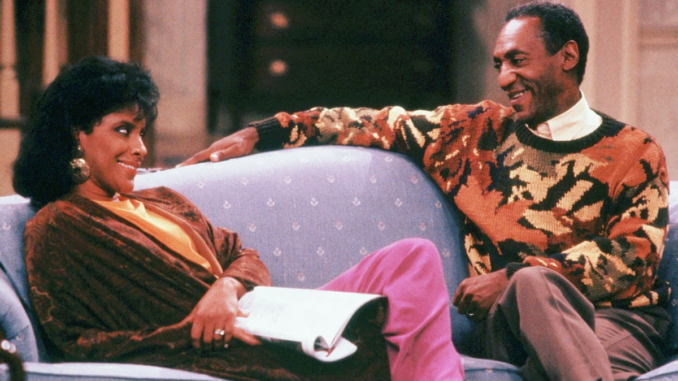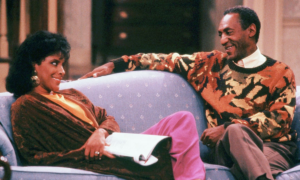
Introduction When The Cosby Show premiered on NBC in 1984, it marked a transformative moment in television history. The show, centered on the Huxtable family—a successful, educated African-American family—was unlike anything seen before on the small screen. It not only revolutionized how African-American families were portrayed in media but also brought issues of race, class, and culture into mainstream American conversations. By breaking away from the usual stereotypes that had dominated previous portrayals of black families, The Cosby Show created a new narrative, one that resonated with audiences across racial lines.

The Groundbreaking Portrayal of African-American Families Before The Cosby Show, African-American families were often portrayed on television as struggling, impoverished, or confined to stereotypical roles. The Huxtables, in contrast, were a model of success. Dr. Cliff Huxtable, played by Bill Cosby, was a successful obstetrician, and his wife, Clair (played by Phylicia Rashad), was a lawyer. Together, they represented an upper-middle-class family that was both aspirational and relatable. Their lives weren’t defined by race or economic hardship, but by universal experiences: marriage, parenthood, education, and personal growth.
Impact on African-American Representation The show’s success was not just about laughs; it was also about representation. In a time when African-American characters were largely limited to either the roles of comedic sidekicks or dramatic figures of struggle, The Cosby Show offered a refreshing portrayal of African-American excellence. The Huxtables became symbols of what many African-Americans could aspire to, breaking stereotypes and providing a new image of black success on TV.
The Show’s Cultural Influence The impact of The Cosby Show extended beyond the television screen. It helped inspire a wave of new television programs featuring African-American protagonists, such as A Different World (a spin-off of The Cosby Show), The Fresh Prince of Bel-Air, and Living Single. The show’s success was a pivotal moment in the fight for more diverse representation in Hollywood. For many, it was proof that African-American stories could reach a broad audience and be profitable.
Legacy and Continued Relevance The Cosby Show’s influence continues to be felt today. In a time when diversity and inclusion in media are central to ongoing conversations, The Cosby Show remains a touchstone of how representation can shape cultural norms. While its legacy is complicated by Cosby’s personal controversies, the impact of the show itself is undeniable. The Huxtable family will always be remembered as one of television’s most groundbreaking portrayals of African-American life.
